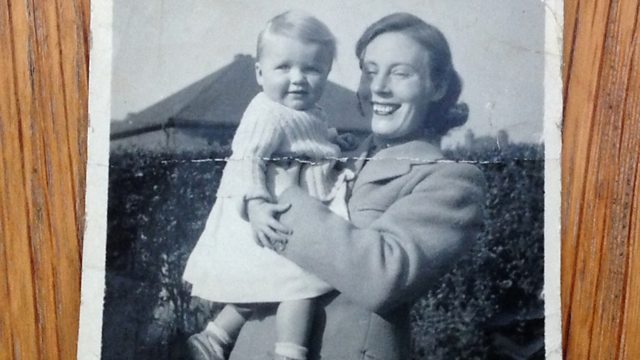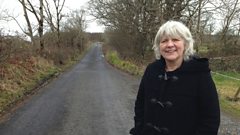
My Mother the Secret Baby
A Storyville documentary: Daisy Asquith tells the personal story of her mother's conception after a dance in the 1940s in Ireland, in an adventure in social and sexual morality.
In this funny and moving documentary, acclaimed film-maker Daisy Asquith tells the very personal story of her mother's conception after a dance in the 1940s on the remote west coast of Ireland.
By exploring the repercussions of this act, Daisy and her mother embark on a fascinating and emotional adventure in social and sexual morality. Her grandmother, compelled to run away to have her baby in secret, handed the child over to 'the nuns'. Daisy's mum was eventually adopted by English Catholics from Stoke-on-Trent. Her grandmother returned to Ireland and told no-one. The father remained a mystery for another 60 years, until Daisy and her mum decided it was time to find out who he was.
Their attempts to find the truth make raw the fear and shame that Catholicism has wrought on the Irish psyche for centuries. It leads Daisy and her mum to connect with a brand new family living an extraordinarily different life.
Last on
More episodes
Previous
Clip
-
![]()
Daisy's mother visits her parents' church
Duration: 02:52
Daisy Asquith, director of My Mother the Secret Baby, answers the Storyville Q&A

In the spirit of choosing one over the other I’ll go for character, as a good story really struggles without a charismatic, intriguing and humorous character to fall in love with. When I found my family I was delighted that they were so unusual, both for the film and for myself.
What made you first want to explore the subject?
It was a compulsion. I needed to know who my relatives were. Growing up without that knowledge gives one a sense of being a cuckoo, not fitting, not knowing what one is made of. It’s disorientating. I wanted my mum to be able to know too. But I think every film should be a compulsion, even when not so deeply personal.
How long did it take to get the film off the ground?
It took about 20 years. I started making it when I was 17 and bought my first secondhandΒ camcorder from the Friday ad. That was when I started to film my mum. But it took me twenty years to find the courage to stand up to the people in my family that wanted to keep us secret. Storyville supported the idea for 4 years, while I wrestled with my relatives and myself to an extent. I had many doubts and fearful moments before I found the courage and
conviction to make it. They were very patient.
What were you most surprised to learn in the course of production?
I learnt that it is important to keep pushing against conservatism, religious prejudice and shame. Even if it hurts. Giving up hurts more.
Which documentary has most inspired you?
Sisters in Law by Kim Longinotto is one of my all time favourites - I love the subtle details she records, never allowing a simplistic narrative.
Favourite Website/blog?
At the moment I am a Tumblr addict, because I am doing PhD research into the homoerotic fan art and fiction made by teenage One Direction fans.
Person you’d most like to interview (living or dead?)
John Grant, in a hot spring in Iceland. I am trying my hardest to make that happen.
Best piece of filmmaking advice you’ve ever been given?
Do not ever give up. I was taught that by producer Oliver Morse at 4am while chasing a surprisingly speedy illegal milk float around County Durham.
Best piece of filmmaking equipment you can’t live without?
I like a camera that is unobtrusive, works with radio mics, and ideally fits in my handbag. I have no patience at all for equipment getting in the way of my relationships with the people I film.
If money was no object, what is your dream documentary subject?
An epic, darkly comic, psycho-drama about John Grant, set in a hot spring in Iceland.
Favourite film of all time?
I will go for High Hopes by Mike Leigh, a massive influence on me at the age of 12. I watched it hundreds of times trying to unpick the performances, the pace, the music, the framing, the storytelling. It gave me an obsessive love for the tiny signals of meaning that people give each
other, and for the complexity of human relationships. I still love the way it deals with class and gender, and its tragi-comedy.
Most difficult access?
All access is difficult if you want enough to record real emotional depth.
Best recent read?
I am reading a lot of homoerotic fan fiction, but I balance it with cultural theory. I recommend Barbie’s Queer Accessories by Erica Rand, which falls into both camps.
Credits
| Role | Contributor |
|---|---|
| Director | Daisy Asquith |
| Series Editor | Nick Fraser |
Broadcasts
- Mon 30 Mar 2015 22:00
- Wed 4 Jan 2017 23:30


